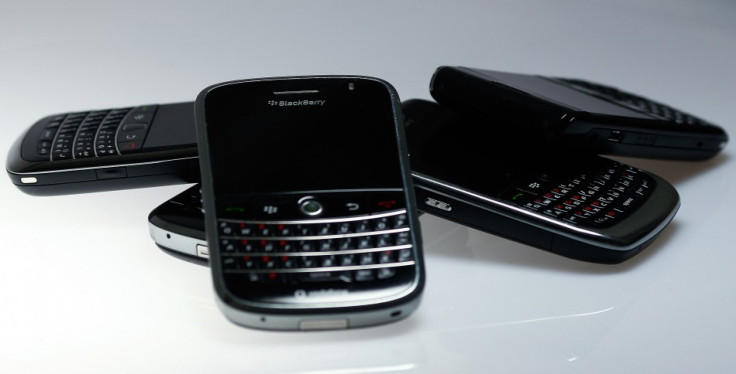RIM’s 2Q Earnings: More Losses, Disasters Ahead?
Key question: can RIM hold out until BlackBerry 10 is ready?

When BlackBerry developer Research in Motion (Nasdaq: RIMM) reports second-quarter results late Thursday, nobody will be surprised if they include another giant loss. The question will be: How much longer? Is BlackBerry 10 coming?
Now that rival Apple (Nasdaq: AAPL), the world's most valuable technology company, has proven yet again there’s enormous demand for the iPhone family and Samsung Electronics (Seoul: 005930) has the world’s top-selling line of Android phones based on the OS from Google (Nasdaq: GOOG), where does that leave RIM?
For one thing, smaller. Over the past year, including a net loss for fiscal 2012 and another to start fiscal 2013, the market capitalization of the Waterloo, Ont., company has plunged about 70 percent. Overall worth is now only about $3.6 billion, compared with about $624 billion for Apple and $246 billion for Google.
Analysts also expect the lag in developing a new model like the BlackBerry 10, as well as a more competitive tablet to buff the PlayBook line, is costing subscribers. Last quarter, RIM said it had about 78 million customers, all of whom use the enterprise software platform the company owns and operates. On Tuesday, though, the company disclosed the base had risen a surprising 2 million, to 80 million customers.
Analysts such as Kris Thompson of National Bank Financial expect the number to decline, as does J. Moorman of Standard & Poor’s. Neither provided estimates. For an operator like RIM, though, a drop in subscribers is a sure revenue loser.
Overall, analysts surveyed by Thomson Reuters expect RIM to report a second-quarter net loss of $235.9 million, or 47 cents a share, compared with year-ago net income of $419 million, or 80 cents. Revenue is estimated to fall about 40 percent, to $2.49 billion.
Earlier this week, RIM CEO Thorsten Heins, 54, told BlackBerry developers the OS for BlackBerry 10 is “on track,” with some of RIM’s mobile carriers already testing it in beta trials. The launch will be “its most important ever,” he added.
The new model was supposed to be ready earlier this year, then scrubbed until sometime in early 2013. Heins, elected CEO only in January to succeed co-founders Michael Lazaridis and James Balsillie, has apparently bet the company on the new phone, which incorporates software RIM acquired from U.S. developer QNX Software Systems sold by Harman International (NYSE: HAR) in 2010.
At the same time, RIM has been paying for “strategic advice” from a unit of Royal Bank of Canada (NYSE: RY) as well as JP Morgan Chase (NYSE: JPM) for months but hasn’t done much.
Some patents for file-allocation software were licensed to Microsoft (Nasdaq: MSFT), the world's biggest software company, but alternatives, such as splitting the company in two or selling out to Microsoft or International Business Machines Corp. (NYSE: IBM), haven’t been tried.
Activist investors headed by Jaguar Financial’s Victor Alboini and Omega Advisers’ Leon Cooperman have bought significant stakes in RIM but weren’t able to accomplish much at the annual meeting in July. In March, Alboini predicted “the company, as we know it, won’t be around in a year."
Options Heins could consider include auctioning its thousands of patents, which Craig Marlett, CEO of MDB Capital, an intellectual property investment bank in Santa Monica, Calif., estimates could fetch as much as $4 billion – more than the value of the entire company. Another possibility is sale to a private equity buyer whose managers are likely also BlackBerry users, or a takeover by Microsoft, which plans to mount a major campaign to get its Windows 8 for phones into the market
One option not under consideration: bankruptcy. At the end of RIM’s second quarter on June 2, the company reported cash and investments of $2.2 billion.
Still, if sales of new smartphones fall, service revenue declines and costs to bring BlackBerry 10 to market escalate, RIM could get into hot water like Eastman Kodak Corp. (Pink: EKDKQ) in January, when it collapsed into bankruptcy.
“It remains to be seen how long the company can do this,” said analyst Shaw Wu, of Sterne Agee. He rates RIM “neutral.”
That’s one reason analysts don’t recommend buying RIM shares, giving it at best “hold” or “market perform” ratings.
Shares of RIM closed Wednesday at $7, up 40 cents.
© Copyright IBTimes 2024. All rights reserved.






















